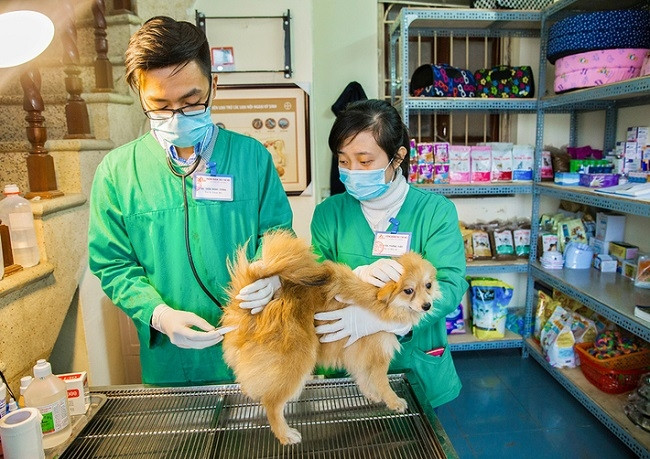Results of rabies surveillance in localities found 27 cases of dogs (25) and cats (2) testing positive for rabies in the provinces of Ca Mau (6), Kien Giang (1), Binh Phuoc (2), Dak Lak (2), Dak Nong (2) and Lang Son (14), in addition to four cases of dogs showing symptoms of rabies in Cao Bang (immediately incinerated without testing). A total of 55 dogs and cats were incinerated.
The main reason for the increase in dogs biting humans, rabid dogs and people with rabies infection is the fact that many locations have yet to strictly implement the provisions of the Law on Animal Health and documents guiding the implementation of the law. A number of localities have not issued specific regulations on the detention of dogs running loose in public places, nor on animals infected with rabies or showing symptoms of the disease. In addition, due attention has not been paid to managing, reviewing and vaccinating packs of domestic dogs. Also, the dissemination and education of laws on rabies prevention and control and the application of sanctions to handle violations of regulations on management of domestic dogs and rabies vaccination of dogs have not yet been fully implemented. All the aforementioned human deaths were due to not getting rabies vaccination after being bitten by dogs. In particular, there remains a phenomenon of using herbal medicines to treat the bitten people, leading to fatalities as symptoms appear.
In order to minimise the number of deaths from rabies, the Ministry of Agriculture and Rural Development recently issued Directive No. 5277/CT-BNN-TY on drastically and synchronously implementing rabies prevention and control measures in animals. Accordingly, the People’s Committees of provinces and centrally run cities should direct departments, branches and the People’s Committees at all levels to focus on taking drastic and synchronous actions regarding the management of dog packs and rabies prevention and control in accordance with the Prime Minister’s Decision No. 193/QD-TTg, dated February 13, 2017, and Directive No. 31/CT-TTg, dated July 6, 2017. For localities with rabies outbreaks in animals, urgent measures must be applied to handle the outbreaks and prevent the disease from spreading.
On the other hand, animal husbandry and veterinary specialists also recommend that authorised forces continue to implement the contents of the “National Programme for Rabies Control and toward Rabies Elimination in the 2017-2021 period”, while proactively monitoring rabies in key provinces and cities to avoid the risk of the disease spreading to humans and other animals. They should also develop a rabies monitoring software by using information technology in animal disease management, in addition to collecting accurate statistics about number of households raising dogs in each residential area and making a book to track the number of raised dogs in each family. At the same time, these households must be requested to commit to strictly implementing declaration and registration for dog raising and putting a muzzle on dogs when taking them out in the streets. Specialists also suggest the effective implementation of rabies vaccination for domestic dogs, ensuring the vaccination rate as regulated.
Together with that, it is necessary to boost communication to enhance the responsibility of dog breeders to the community and raise people’s awareness in actively participating in rabies prevention and control, as well as strictly punishing violations of regulations on rabies prevention and control and management of domestic dogs. Specialised units, such as veterinary and health care establishments, should inspect, guide and encourage the internal implementation of rabies prevention and control measures and investigate cases of human casualties caused by rabid dog bites. In addition, those who have contact with dogs and cats and dog slaughterers should wear protective clothing and proactively get rabies vaccination immediately after being bitten by dogs or cats.
















